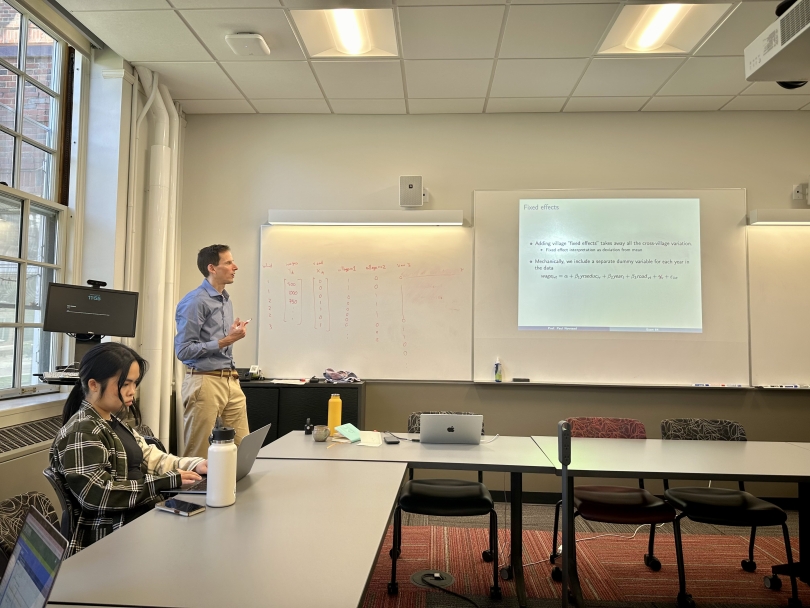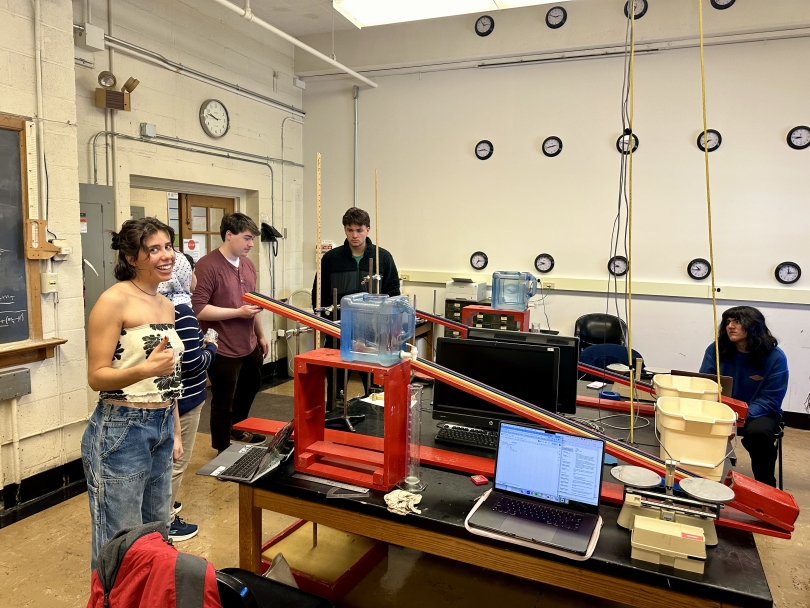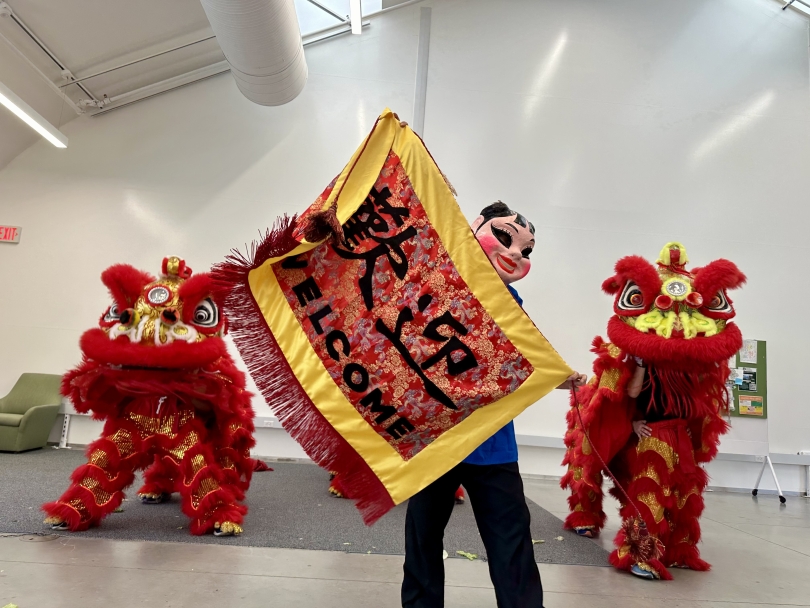
My Final Term at Dartmouth: A True Liberal Arts Schedule
Dartmouth's liberal arts curriculum pushes students to explore new departments and draw connections between seemingly disparate disciplines. This spring, I am wrapping up my Economics major, Environmental Studies major, and International Studies minor with three final classes of my undergraduate career—exploring the Physics and Asian, Societies, Cultures, and Languages departments for the first time. Let's get into them!

ECON 64: Topics in Development Economics
This capstone course is the culmination of everything I've learned as an Economics major. Unlike my previous Economics courses, which involved exams, ECON 64 focuses on producing a comprehensive paper about access to opportunity and human capital in developing countries. I am particularly excited to apply my knowledge of the coding language Stata from taking ECON 20: Econometrics last term to conduct original empirical research. From identifying a topic to cleaning the data, each course component is challenging and requires lots of original thought. Professor Novosad has set milestones throughout the term to keep us on track, including an annotated bibliography, context and data section, literature review, methodology, and preliminary results. My own research will delve into the impact of the 2004 Boxing Day tsunami on internal migration within Indonesia, exploring how natural disasters influence where people move.

PHYS 1: Understanding the Universe: From Atoms to the Big Bang, with Laboratory
Dubbed "Physics for Poets," PHYS 1 is the quintessential liberal arts science humanities course; no real math or hard science is required! We study the historical evolution of physical theories of natural phenomena from Greek antiquity to the modern era. For me, it counts as the science lab prerequisite and final class needed to complete my Environmental Studies major and graduation distributive requirements. Although I haven't taken a physics class since my sophomore year of high school, this course is designed for non-science majors; labs are engaging and involve exploring a classic experiment from the history of physics, from Galileo's inclined plane to Thomas Young's wave nature of light. We read primary texts from philosophers like Plato, Aristotle, Ptolemy, and Kepler. Teaching at Dartmouth since 1991, Professor Gleiser is an expert in his field and was awarded the Templeton Prize for religion, science, and philosophy alongside past laureates Mother Teresa, Jane Goodall, and the Dalai Lama. He brings physics to life with live demonstrations of Galileo's laws of free fall, spectral lines, electromagnetism, and much more!

ASCL 10.01: Introduction to Chinese Culture
This course not only completes my International Studies minor under the World Language & Culture theme, but connects me more deeply with my heritage as a third-generation Chinese-American. ASCL 10.01 introduces Chinese culture through poems, stories, and films from 2000 BCE to the present day. So far, some topics we have covered include Confucianism and social relations, calligraphy, and traditional poetry. Professor Xie and Professor Wang have invited cool guest lecturers across Dartmouth, such as Gil Raz from the Department of Religion and archeologist Jiajing Wang from the Department of Anthropology, to speak about Daoism and early Chinese civilizations. The photo above was taken at a Lion Dance Show open to campus for the start of Asian American Pacific Islander Heritage Month (AAPIHM), featuring the country's first all-female lion and dragon dance group. Fun fact: My Introduction to Chinese Culture TA is fellow blogger Diana, and two other People Places Pines bloggers, Garrett and Joanna, are in the class!
This may be sentimental, but my four years at Dartmouth have flown by in the blink of an eye! From studying my heritage to the philosophies of the universe, I never thought I would have the chance to double major and add a minor while taking so many eye-opening classes outside the Economics, Environmental Studies, and International Studies departments. My courseload this final term is truly a testament to Dartmouth's flexibility, encouraging its students to dabble in new fields before leaving the woods we'll forever call home.
















